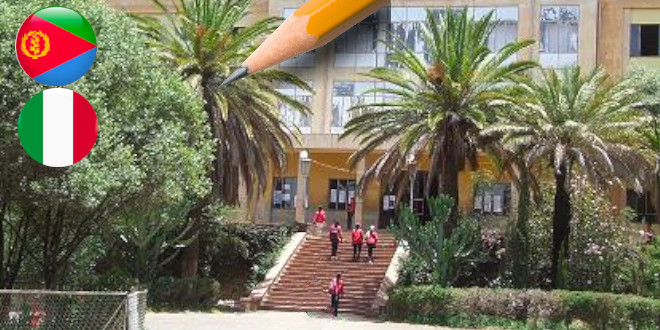Reclaiming Eritrea After 19 Years Of Tyranny
 19 years ago today (May 24th), Eritrean freedom fighters liberated Eritrea from Ethiopian occupation. The Eritrean people, who had been waging a struggle for liberation since 1961, when the Ethiopian government of Haile Selassie was in its last stages of flouting the Eritrea-Ethiopia Federation of 1952, breathed a sigh of relief. After all, for 40 long years, they had longed for a day when they would get the right to govern themselves. But the relief was short-lived, as a domestic tyrant, Isaias Afwerki, replaced a foreign tyrant, Mengistu Haile Mariam, and ruled Eritreans with an iron fist, as brutal as the one he replaced.
19 years ago today (May 24th), Eritrean freedom fighters liberated Eritrea from Ethiopian occupation. The Eritrean people, who had been waging a struggle for liberation since 1961, when the Ethiopian government of Haile Selassie was in its last stages of flouting the Eritrea-Ethiopia Federation of 1952, breathed a sigh of relief. After all, for 40 long years, they had longed for a day when they would get the right to govern themselves. But the relief was short-lived, as a domestic tyrant, Isaias Afwerki, replaced a foreign tyrant, Mengistu Haile Mariam, and ruled Eritreans with an iron fist, as brutal as the one he replaced.
How long is 19 years? It is a short time for a nation, but a long time for a regime. Aware of this fact, Isaias Afwerki, his minions and apologists never miss an opportunity to conflate the two: to equate the country with the government, and the government with Isaias Afwerki. But 19 years is a very long time for one man to lord over a country. If you doubt this, consider the following: Mengistu’s reign was 14 years (1977-1991) and Eritreans thought it lasted a century.
For his brutality, Mengistu claimed that he was in a state of war—fighting the Eritrean and Ethiopian rebels who were engaging his forces in battles, virtually every day. As brutal as Mengistu was (and there is no question about that, historians rank him among the world’s most brutish), he occasionally worried about appearing to be just—by allowing some prisoners to be visited by their loved ones. And while his cruelty could not be justified, it was at least cloaked in the ideological garb of Marxism-Leninsm and it was subject to influence and moderation based on the international bosses of Marxism Leninsm (USSR, East Germany, Cuba, etc.)
Compare that with Eritrea’s domestic tyrant, Isaias Afwerki. His only ideology is that of self-preservation, and he is not apt to do anything unless it improves his odds of self-preservation and power for the sake of power. Disappearing people, arresting people, torturing people, exiling people, is all a day’s work for him, and the only common purpose these sadistic measures have is that they make Isaias Afwerki feel more secure about his hold on power.
As inconceivable as it may have appeared 19 years ago, Eritrea has traded one foreign tyrant with a homegrown one who is just as cruel, just as indifferent to anything and anybody other than his hold on power. The forces that the Eritrean people had relied on to become its insurance against any power abuse—the Eritrean combatants—have themselves become victims of tyranny. After 19 years, Eritrea’s undisputed accomplishments can be counted in the fingers of one hand:
- Trading the Ethiopian flag for a home-made flag;
- Trading Amharic for Tigrigna.
The country has no constitution. No rule of law. No mechanism to replace rulers peacefully. No freedom of assembly. No freedom of press. No freedom of religion. No freedom of movement. Not even a budget. No justice. And no peace.
For 14 out of Eritrea’s 19 years of existence, the dictator has found a reason to shed Eritrean blood in one battle or another. The first was the December 1995 “Hanish Island Crisis”—a war with Yemen. The dictator had to leave territories he occupied by force, under the duress of the Security Council, and then surrender more territories under the ruling of the Hague. The same year, he attempted a confrontation with Djibouti, and he had to hold his fire when France (on behalf of Djibouti) told him to back off. This was followed by a two-year war with Ethiopia (1998-2000) which the Eritrea-Ethiopia Claims Commission ruled was started by him. Since the years 2000 he has been arming and facilitating the training of any agitator who wants to overthrow the governments of the neighboring countries—Sudan, Ethiopia, and Somalia. And he has been, according to the UN Security Council, occupying disputed territories in Djibouti and refusing to get out since 2008.
Reclaiming Eritrea
Just as Mengistu Hailemariam had an ever-dwindling group of “nationalists” who justified his excesses on the grounds that he is a “patriot”, the Eritrean tyrant also has his supporters who rally to his rambling pronouncements whenever he tells them fantastic tales of how he, an innocent nationalist, is facing a conspiratorial enemy who is envious of his incorruptibility and of his supposed ability to chart ahead independently.
But what tangible accomplishment can Isaias Afwerki point to after he has been at the helm of power for 19 long years? Is it the malnutrition rate (at 75% the highest in the world)? Is it the fact that foreign aid makes up 29% of GDP rendering Eritrea, despite all the huffing and puffing by the tyrant, the world’s 3rd most dependent nation? Is it primary school attendance rate? Is it the nation’s purchasing power parity? Is it Eritrea’s exports? Is it the percentage of population that lives below the poverty line? Is it based on its military expenditure as a percentage of its GDP? Is it its anemic 0.5% annual GDP growth (the 13th lowest in the world?) Is it the percentage of girls enrolled at school (war-torn Somalia has higher rates!) Is it the maternal mortality rate of 1,000 per 100,000 making Eritrea the 4th deadliest nations for expecting mothers (and only because 3 countries are tied for number 1?)
Eritreans must reclaim their country. For 19 long years, the tyrant has impoverished Eritrea politically, morally, and financially. He has taken the country from one useless adventure to another, and he has nothing to show for it except empty promises, and excuses. He has fed the people nothing but an inflated ego, which cannot be harvested. For the sake of the country, he and his corrupt power structure must go. And, in his place, a new structure must be placed—one that is not reliant on the kindness of people, or the expectations that they have super-power skills. A new structure—a negotiated structure that comes about from a free people who negotiate freely in a free setting, in an environment of candor and goodwill. A new structure that is worthy of the history and culture of a proud people. Because as long as Isaias is in power, no Eritrean can be proud.


Awate Forum